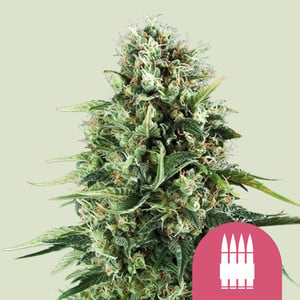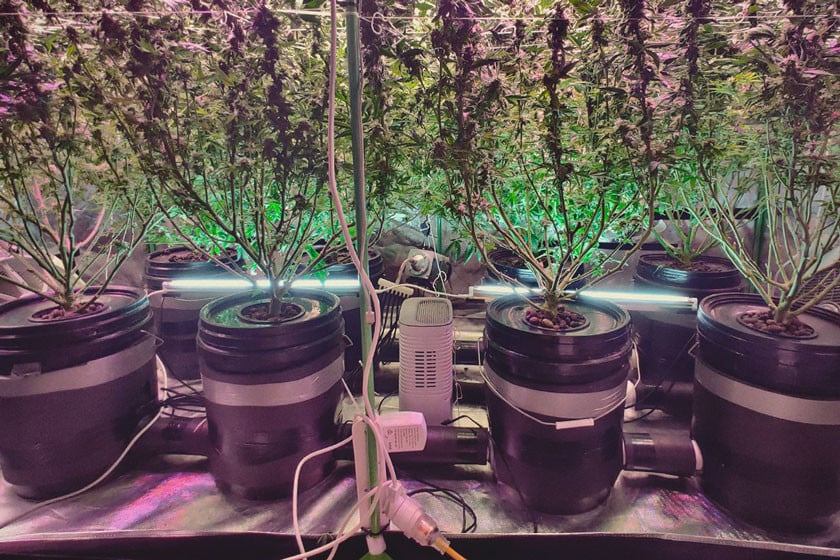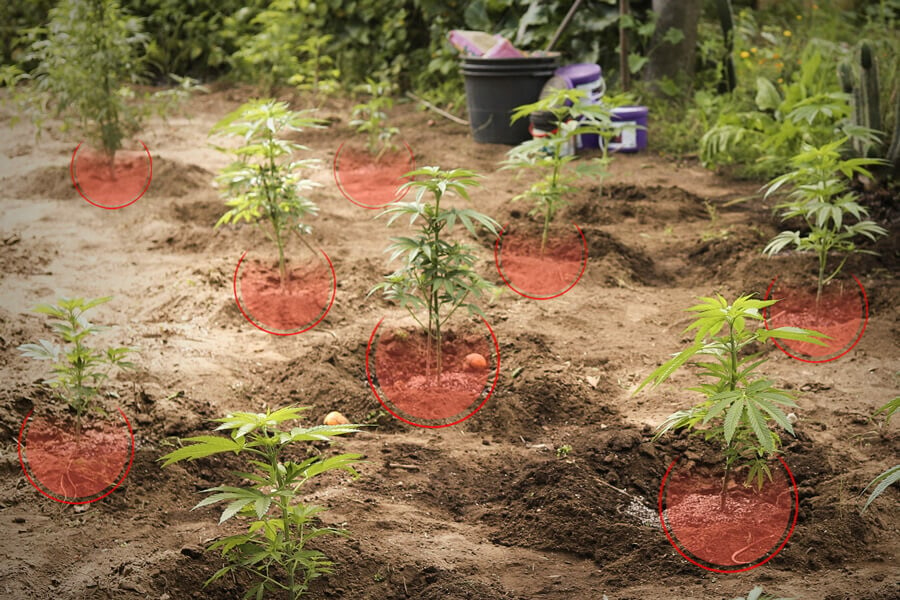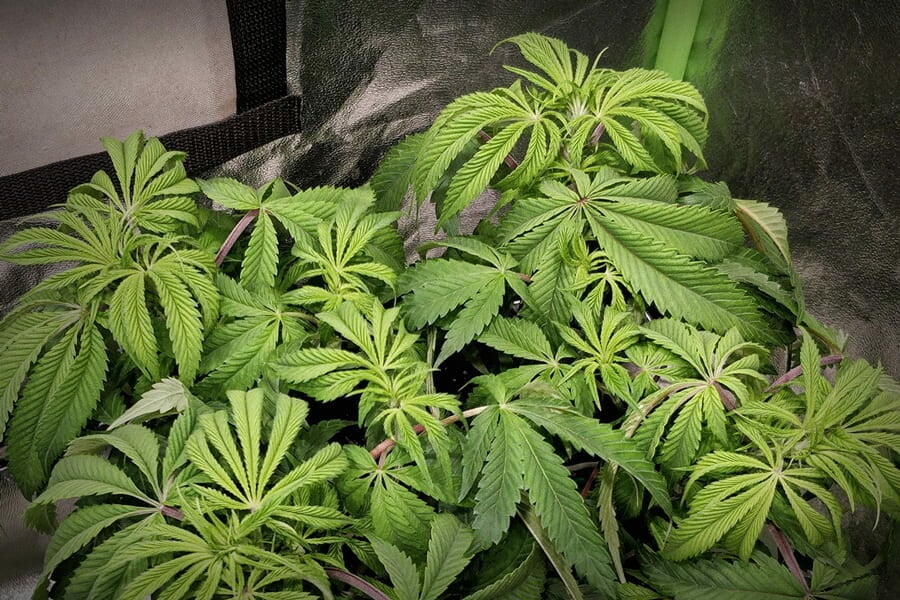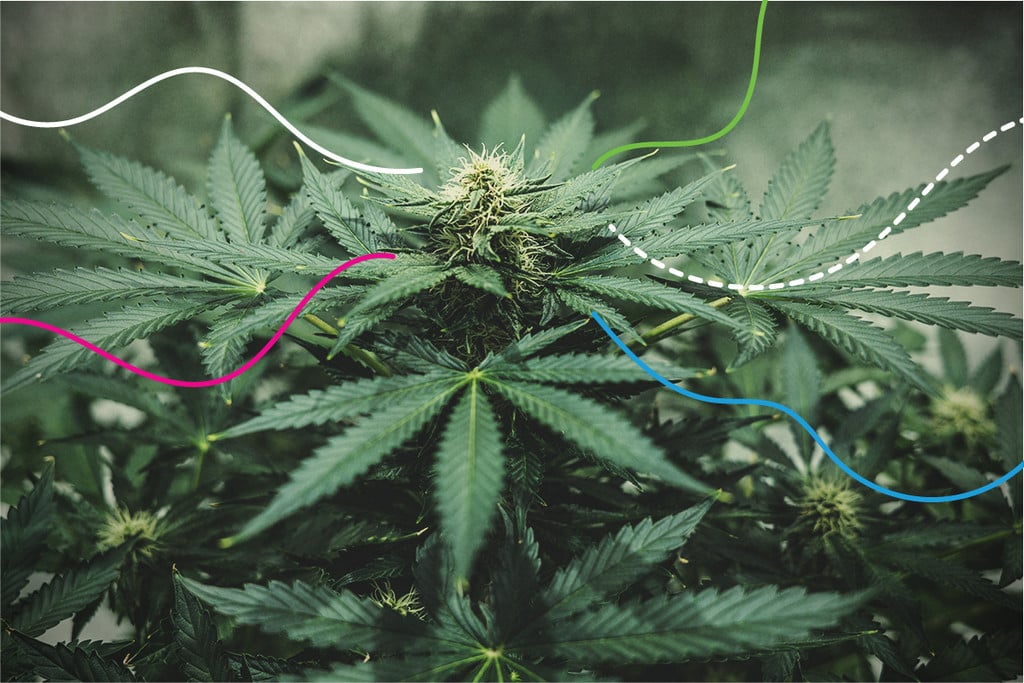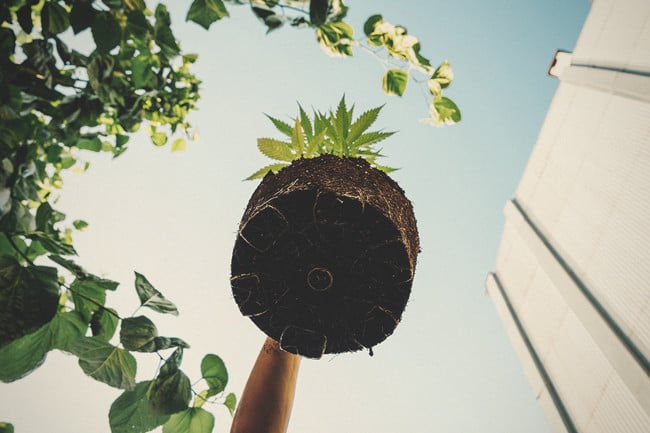.
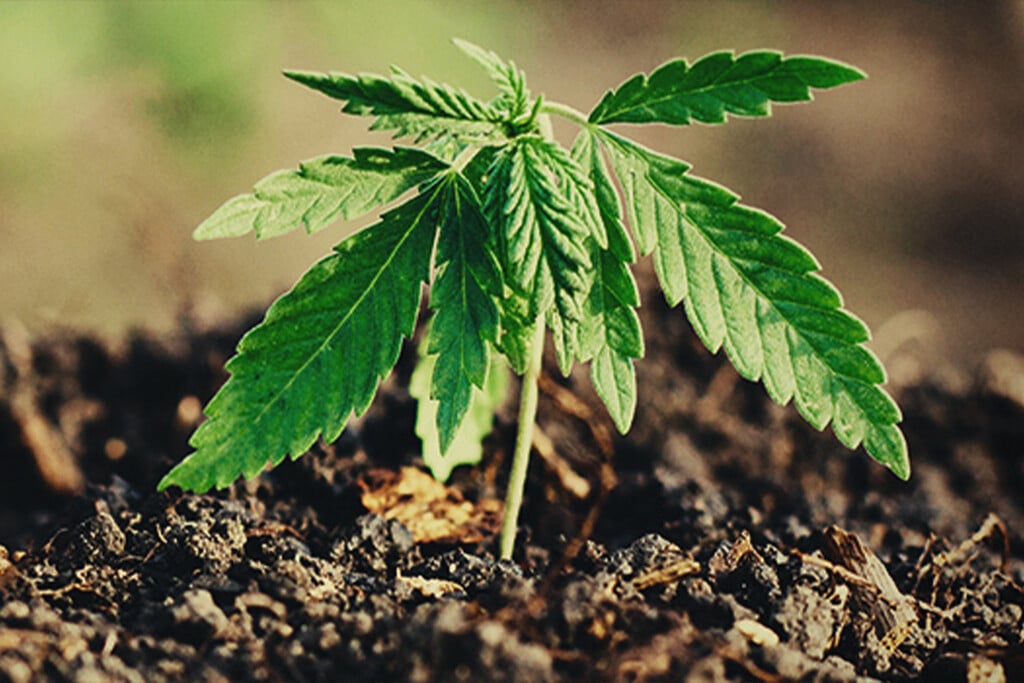
Dry Farming Cannabis: A Guide to Sustainable Water-Saving Cultivation
Weed is renowned for being a water-loving plant. But what if you could grow cannabis without the need for constant irrigation, saving water, money, and the environment in the process? In this article, we'll walk you through dry farming, an agricultural process with a proven track record for producing excellent crops in dry regions.
Contents:
- How much water does weed need?
- What is dry farming cannabis, and how does it work?
- Why choose dry farming for cannabis?
- Challenges when dry farming weed
- Getting started with dry farming: how to use dry farming to grow great weed at home
- The best soil moisture levels for cannabis
- What are the best cannabis strains for dry farming cannabis?
- The future of dry farming in cannabis cultivation
- Dry farming: growing weed with less impact
Did you know you can grow water-loving crops like cannabis with little-to-no irrigation? Dry farming is an agricultural practice that's long helped to produce heavy harvests of commodity crops in dry regions.
In this article, we’ll explain what dry farming cannabis is, how it works, and some of the best strains for the job.
How Much Water Does Weed Need?
Weed loves to drink. In fact, statistics show that the average cannabis plant in California[1] consumes roughly 20 litres of water every day in August and September—that's more than wheat, corn, soybean, cotton, and rice.
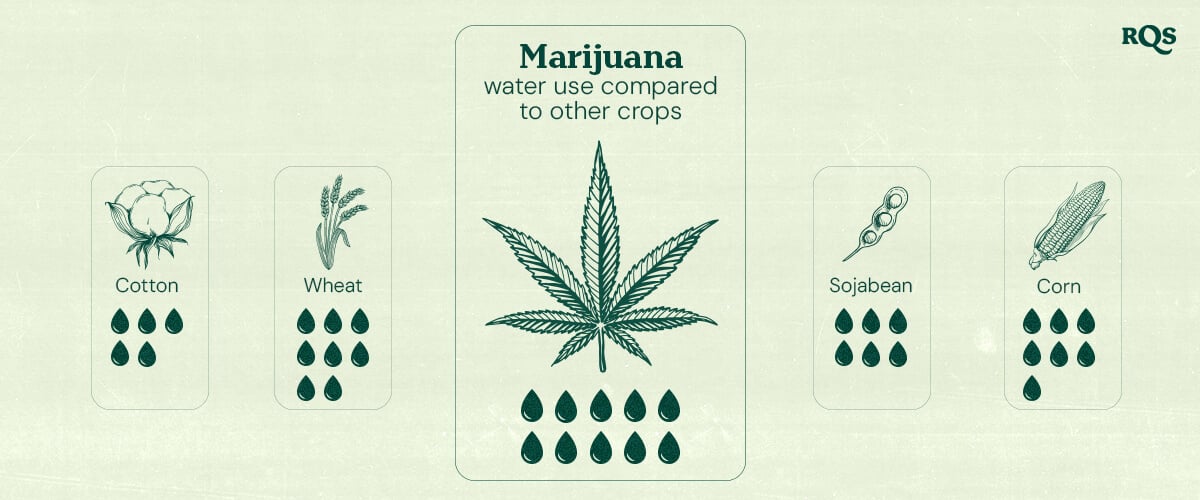
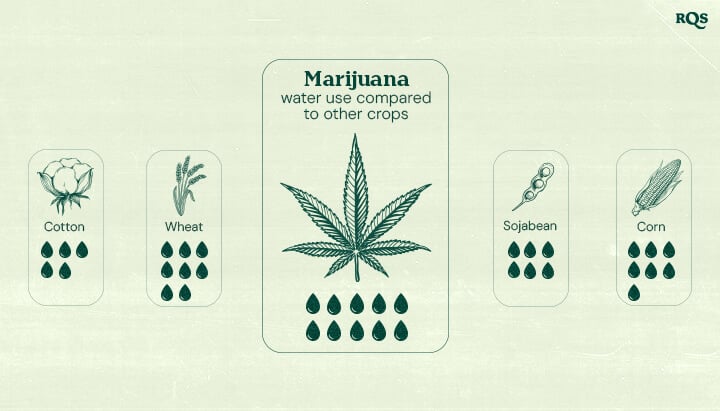
On the one hand, this is due to cannabis’ natural preference for well-draining soils and warm climates. However, breeding weed plants for faster, larger harvests has likely increased their water demand. By pushing cannabis to produce larger flowers and bushier foliage, its biomass increases, which naturally causes the plant to take up more water to fuel its growth.
What Is Dry Farming Cannabis, and How Does It Work?
The main principle behind dry farming is improving a soil's ability to absorb and store moisture. Compared to using constant irrigation to keep the soil moist, dry farming involves manipulating the soil or changing its makeup so that, when it does get wet, it's able to retain moisture for longer.
Tilling and weeding, for example, are ways of doing this, but growers can also leave behind "stubble" (residual parts of plants left over after harvest) to trap water and snow in order to help keep their soil moist.
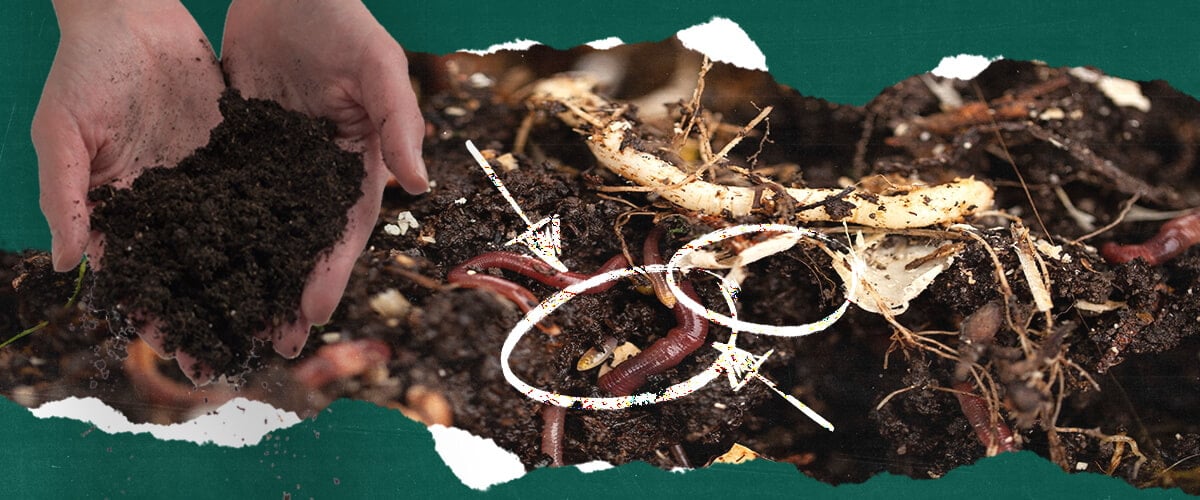
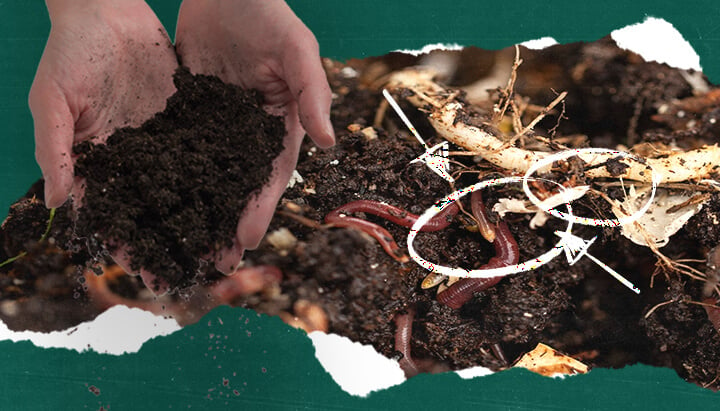
Besides actually manipulating their soil, dry farmers also seek out crop varieties with deeper roots or that are more adept at growing in arid conditions. These crops are sometimes started off indoors then planted outdoors after heavy rains have moistened the soil (sometimes even during the rainy season). The water naturally retained by the soil can be enough to see some crops through their entire life cycle without ever needing to be watered manually.
While it might seem novel to the cannabis grower, dry farming has long been used by farmers of commodity crops. In the US, for example, it's used by farmers across[2] the Great Plains, the Palouse Plateau, California, and many other regions affected by drought and arid conditions. Outside of the US, dry farming is also used in Africa, the Middle East, Central and South America, Australia, and Europe.
Some of the crops most commonly cultivated using dry farming methods include:
- Wheat
- Sunflowers
- Cotton
- Corn
- Rye
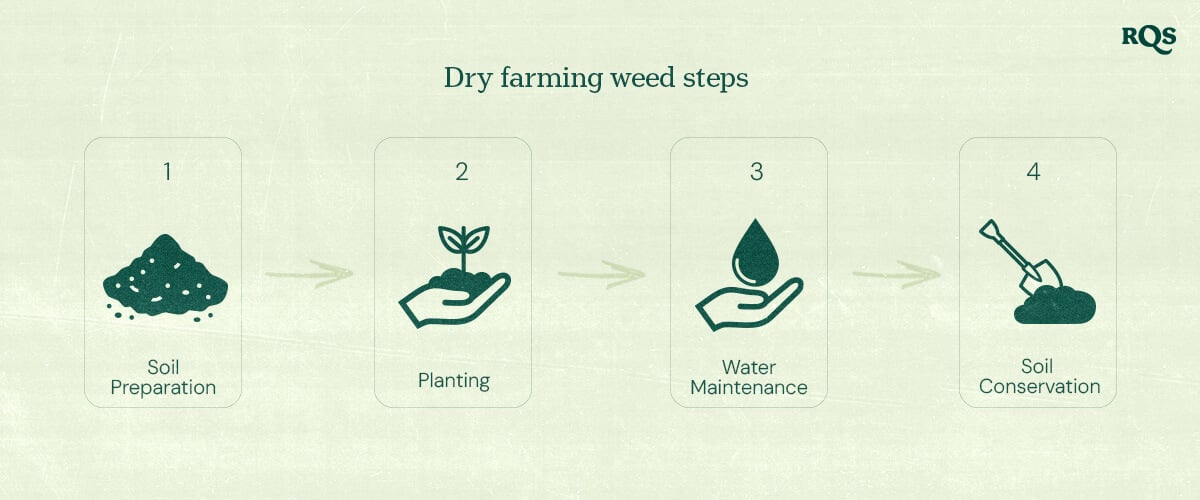
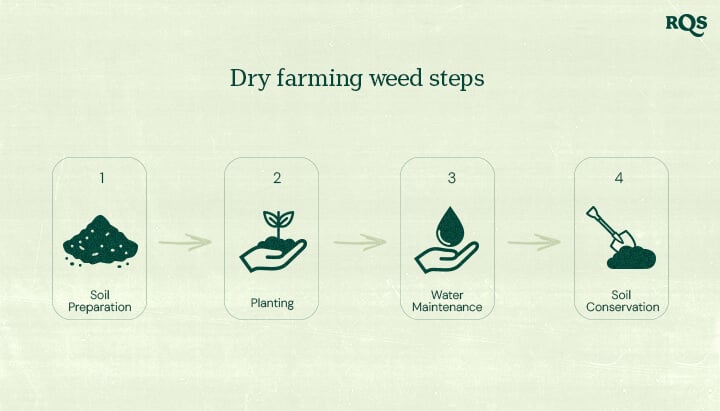
Thanks to dryland farming, farmers have managed to cultivate the above crops in areas that receive little over 200 mm of rainfall a year, including northwestern Argentina[3], the Thal Desert in Pakistan[4], and the Sahel in Africa[5]. By focusing on maximising soil quality and moisture conservation, farmers in these regions are able to overcome the extreme local conditions.
Why Choose Dry Farming for Cannabis?
Beyond being the environmentally responsible choice, dry farming cannabis also makes economic sense. Imagine cutting down your water bills and eliminating the need for expensive irrigation systems. Although cannabis is often associated with peace-loving, environmentally conscious lifestyles, the reality of its commercial cultivation is far from green. Cannabis plants often consume more water than many other crops, as mentioned earlier. Moreover, the indoor cultivation of cannabis also consumes a lot of energy, and the fertilisers used to push weed plants to their limits can also have an adverse impact on the environment.
Research suggests, for example, that the lighting used in indoor cannabis cultivation demands 70 times more energy[6] than the lighting used to run commercial office buildings. And that's without accounting for the energy used to power the ventilation, air conditioning, and irrigation systems needed to grow weed indoors.
Commercial cannabis growers also heavily rely on the use of pesticides and fertilisers to protect their plants from pests and maximise the potency and size of the harvests they produce. The runoff from cannabis farms, therefore, can endanger the environment and contribute to the buildup of pesticides, heavy metals, and nutrients in local ecosystems, eroding soil and polluting water. The US National Cannabis Industry Association’s 2020 report[7] on Environmental Sustainability in the Cannabis Industry, for example, is a great source for better understanding the environmental impact of commercial cannabis cultivation.
Of course, dry farming can't solve all of the environmental issues associated with growing weed. However, it could significantly reduce the water required to cultivate cannabis.
When applied to large-scale legal operations, the benefit could be massive, of course. Yet, even home growers can use dry farming techniques to maximise water retention in their cannabis garden and therefore help reduce the environmental impact of their grow.
Benefits of Dry Farming for Weed
Besides the obvious benefit of reducing water use, dry farming may also benefit cannabis farmers in the following ways:
- Improves aromas, flavours, and potency: There's solid research to show that certain cannabis plants exposed to environmental stress like drought[8], ultraviolet radiation[9], nutrient restrictions[10], unfavourable temperatures[11], and even mechanical stress[12] can develop more cannabinoids and terpenes. By helping their plants survive harsh arid conditions, dry farming could lead growers to produce more aromatic, flavourful, and potent weed.
- Reduces costs: Without the need for expensive irrigation systems, growers can save money on the actual infrastructure, water, and maintenance they require.
- Produces reliable harvests, even in poor conditions: Since the dawn of agriculture, farmers have been at the mercy of the environment. And outdoor cannabis growers are no different. By harnessing dry farming techniques, cannabis growers can maximise their chances of producing a good harvest even when the local climate isn't in their favour.
- Improves soil quality: Soil quality directly impacts the quality of cannabis. By improving the soil and its ability to retain moisture, dry farming cannabis growers can sustain better-growing media well into the future.
Challenges When Dry Farming Weed
Dry farming has clear benefits. However, it doesn't come without its challenges. The most common challenges cannabis farmers face when dry farming include:
- Water shortages: Cannabis is water-hungry, and most growers rely on manual or automated irrigation to meet its needs. When dry farming, on the other hand, cannabis growers need to learn how to keep their plants hydrated from retained moisture instead. If improperly managed, the health of the plants suffers, which can negatively impact their harvests.
- Managing soil quality: As you'll see further below, maintaining healthy soil is crucial for dry farming but may prove challenging to cannabis growers—especially those used to growing hydroponically. Dry farming requires a good understanding of soil structure and organic cultivation to ensure good yields.
- Maintaining healthy plants: Without irrigation, cannabis plants can become more susceptible to nutrient deficiencies and environmental stress. When dry farming cannabis, growers need to learn to mitigate these issues by maintaining a healthy growing medium throughout the growing cycle.
- Managing plant stress: Cannabis thrives under controlled conditions, but dry farming exposes plants to heat, drought, and other forms of stress. When managed properly, these stressors can actually improve the growth of plants. If not, however, they can prove to be detrimental.
Getting Started with Dry Farming: How to Use Dry Farming to Grow Great Weed at Home
Dry farming is most commonly used by commercial farmers. However, that doesn't mean you can't use it to improve your home cannabis cultivation operation. Below, we'll walk you through some basic dry farming tips for cannabis that you can use to elevate your grow while minimising water consumption.
Choosing the Right Location for Dry Farming
- Grow outdoors: Dry farming is traditionally done outdoors where natural rainfall can water plants and moisten your soil. If you're set on growing indoors, you could use a rainwater tank to catch precipitation and water your indoor plants. You'd then also use the soil amendments mentioned further below to help your soil retain moisture for longer.
- Maximise lighting: Cannabis needs plenty of sunlight to thrive, so select a well-lit outdoor area in which to grow your plants. Indoors, use high-quality grow lights and all the environmental controls necessary to give your plants the right growing conditions.
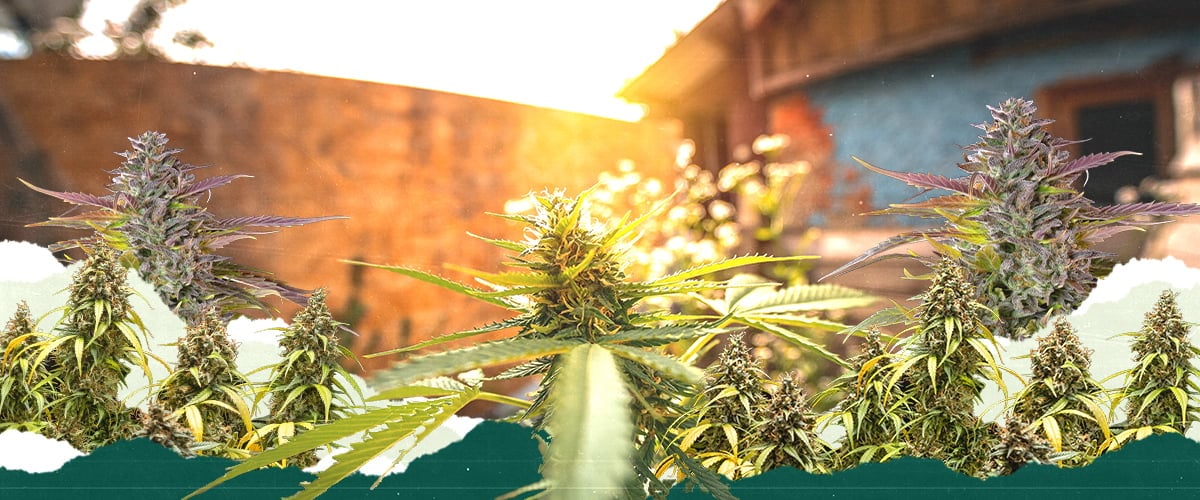
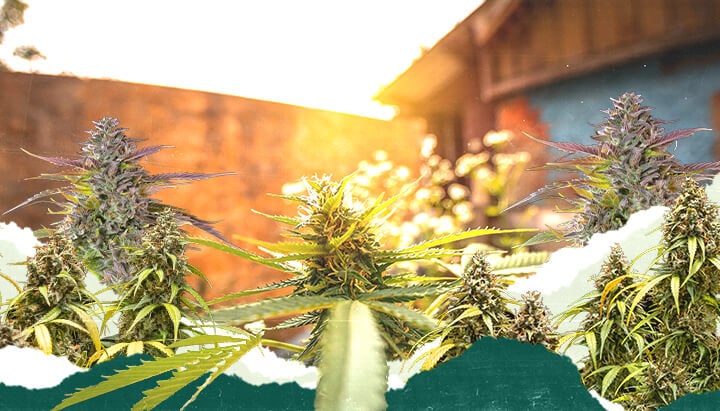
Specific Soil Preparation Tips for Dry Farming
The quality of your soil is central to your ability to make dry farming work. While every farmer might prepare their soil a little differently based on their preferences, the demands of their crops, and the local climate, there are some basic soil prep principles you can follow to get started:
- Use soil amendments: Clay, compost, worm castings, peat moss, and manure can all help enrich the soil and improve its ability to hold water. Vermiculite is another common soil additive that can improve water retention.
- Top-dressing: Top-dressing soil with rocks, straw, and mulch can insulate it and minimise the amount of water lost through evaporation.
- Dig deep (or use raised beds): One of the principles of dry farming is planting deep in the soil so the roots are able to access the stored moisture. You can do this by planting directly in the ground or in raised beds. In general, it's a good idea to loosen the soil at least 30–45 cm deep to encourage root penetration and water absorption.
- Minimise tillage: Tilling soil is important for dry farming, as it helps rid it of weeds that can compete for the limited water available to your plants. However, regular tilling also destroys soil structure, affecting its ability to maintain nutrients and water. By minimising tilling and preparing high-quality soil, you can minimise weeds in your garden while also preserving your growing medium.
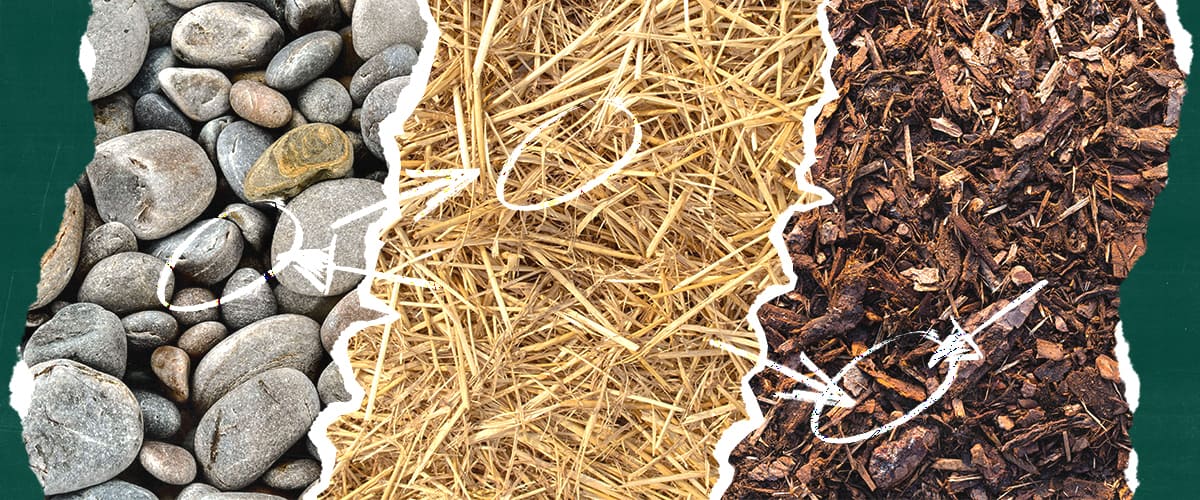
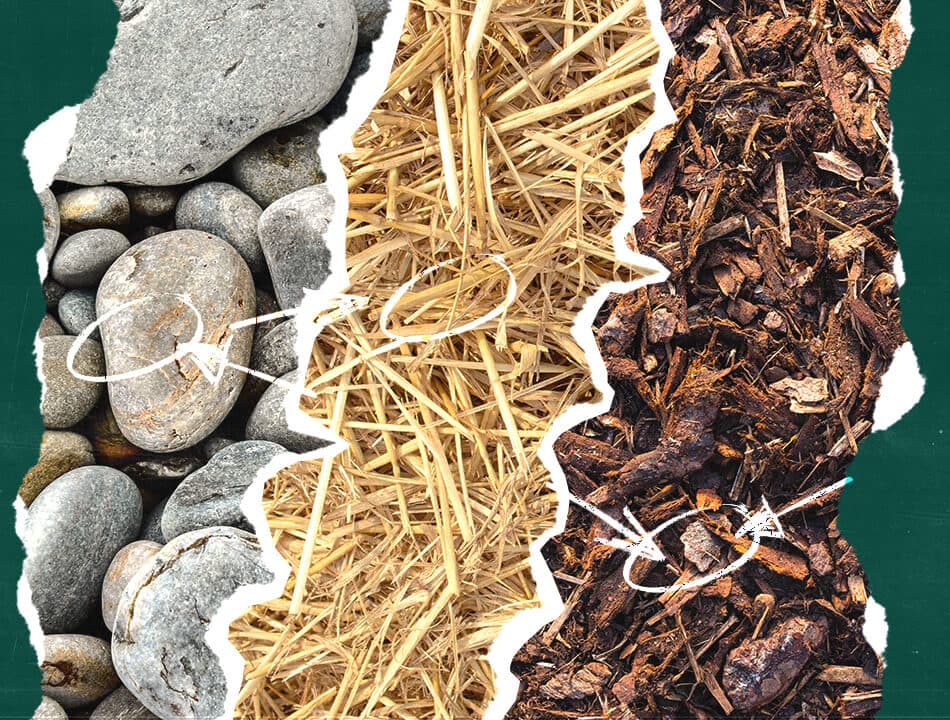
Dry Farming Planting Techniques
- Start during the rainy season: If you live in an area with seasonal rainfall, you'll want to ensure your soil soaks up as much of this natural precipitation as possible. Catching rainwater in a tank also helps. Then, you'll want to plant your cannabis as close to the wet season as possible. Of course, flowering cannabis plants do not like moist conditions, so it's usually a good idea to bring vegetative plants outside during the rainy season instead, timing flowering so that it coincides with the dry season.
- Space your plants further apart: Unlike traditional gardens, dry farming necessitates wider plant spacing to reduce competition for limited soil moisture. Aim to plant your cannabis at least 90–150 cm apart.
- Choose the right strains: Hardy, drought-resistant cannabis strains with strong root systems are the best choice for dry farming. See our strain recommendations further below.
Tips for Maintaining a Dry-Farmed Cannabis Garden
Follow the guidelines above and you'll be well underway to starting your dry farm cannabis garden. To maintain it, be sure to:
- Avoid irrigation: The principle behind dry farming is to minimise irrigation as much as possible. Of course, that doesn't mean you should let your plants die of thirst—however, you'll want to water them only minimally using, where possible, rainwater you caught in a tank.
- Monitor soil moisture: Moisture meters are a must-have for dry farming cannabis growers. Use them to take regular samples of your soil’s moisture content and ensure your plants always have access to enough water. Use irrigation when moisture levels drop below where they should (see below).
- Encourage deep root growth: Regular superficial watering encourages the growth of weak, surface-level roots. When dry farming, avoiding irrigation as much as possible helps promote the growth of deeper, stronger root systems.
- Use companion plants: While weeds can compete with your cannabis plants for water, the right companion plants can do the opposite. There are many crops (lettuce, leafy herbs like parsley, and strawberries, etc.) that cannabis growers can use to promote moisture retention in their gardens.
The Best Soil Moisture Levels for Cannabis
To dry farm cannabis successfully, you must maintain healthy soil moisture levels. In general, the best soil moisture levels for cannabis are:
- 50–70% during the seedling phase
- 40–70% during vegetation (most strains perform best at around 40–50% but there are exceptions)
- 40–50% during early flowering
- 30–40% during late flowering
What Are the Best Cannabis Strains for Dry Farming Cannabis?
Dry farming cannabis requires strains that are naturally suited to thrive in arid conditions. Look for cultivars that are hardy, drought-resistant, and resilient against pests and pathogens. Most importantly, look for strains capable of developing deep root systems that can access underground moisture. Some good options include:
- Durban Poison: Originating from South Africa, Durban Poison is a pure sativa known for its resilience in hot and dry climates. It develops deep roots and is naturally resistant to pests and mould.
- Afghan Kush: Hailing from the mountainous regions of Afghanistan, this indica strain is well suited to arid conditions. Its robust nature allows it to withstand drought, and it is also capable of developing deep roots. Like other landraces, Afghan Kush is naturally resistant to pests and pathogens.
- Acapulco Gold: This legendary sativa strain originates from Mexico, where it has naturally adapted to local conditions for decades (possibly even centuries). It handles hot, arid conditions with ease and also develops deep root systems.
At Royal Queen Seeds, we've developed several strains from these sought-after lineages. Check out the following strains from our catalogue for your dry farming cannabis project:
Special Kush 1: Descending from Hindu Kush, Special Kush 1 has inherited extra-hardy genetics. This strain handles hot climates with ease and can reach impressive heights, especially outdoors.
Special Kush 1
|
|
Afghan x Kush |
|
|
425 - 475 gr/m2 |
|
|
60 - 100 cm |
|
|
50 - 55 days |
|
|
THC: Up to 17% |
|
|
Sativa 20% Indica 80% |
|
|
500 - 550 gr/plant |
|
|
200 - 270 cm |
|
|
Late September |
|
|
Heavy, Physically Relaxing, Stoned |
ICE (Indica Crystal Extreme): ICE descends from Afghan, Northern Lights, and Skunk. This genetic blend makes for a vigorous strain with excellent resistance to drought, heat, pests, and pathogens. ICE also grows to great heights and, in turn, produces excellent yields.
Royal AK: Royal AK is Royal Queen Seeds' version of the legendary AK-47. Descending from Colombian, Mexican, Thai, and Afghan landraces, this is a robust strain that thrives in any environment and produces top-shelf bud.
Royal AK
|
|
Columbian, Mexican, Thai & Afghan |
|
|
525 - 575 gr/m2 |
|
|
80 - 140 cm |
|
|
55 - 60 days |
|
|
THC: Up to 19% |
|
|
Sativa 60% Indica 40% |
|
|
600 - 650 gr/plant |
|
|
130 - 170 cm |
|
|
Early October |
|
|
Balanced, Clear, Stoned |
The Future of Dry Farming in Cannabis Cultivation
Climate change is a real concern for all of humanity. Since the late 19th century, the Earth's surface temperature has increased by around 1°C, with most of the warming occurring in the last 40 years. This rise in temperature has been linked[13] to the warming of ocean temperatures, glacial retreat, and extreme weather events like the 2025 Southern California wildfires.
Of course, the agricultural sector feels the effects of climate change like few others. Studies show, for example, that rising global temperatures[14] directly impact the yields of essential crops like wheat. Agricultural techniques like dry farming, as we saw earlier, are already playing a major part in helping farmers deal with these conditions.
For the cannabis industry, it's time to take note. If legal weed plans to remain a viable and relevant industry in the coming decades, it's high time to adopt more sustainable cultivation practices. In fact, given that weed is often grown in hot areas like California, Oregon, and parts of Australia (many of which already struggle with water shortages), water-conscious cannabis farming is more important than ever before.
Dry Farming: Growing Weed with Less Impact
Fortunately, as we've seen in this article, using dry farming to revolutionise the cultivation of cannabis is very possible. First and foremost, dry farming is already being used around the world, meaning the cannabis industry has real cases to study and learn from. Moreover, the weed industry has the benefit of working with a crop that is well suited to dry farming practices—cannabis thrives in warm, dry climates, and stressors like drought can even improve the quality of the plant's flowers.
Looking to lead the charge towards a future of sustainable cannabis cultivation? Use the tips we've explored here to grow top-shelf bud at home, all while using less water. Browse our full range of drought-resistant cannabis seeds and start your sustainable grow today.
- Cannabis requires more water than commodity crops, researchers say https://mjbizdaily.com
- Dry Farming Techniques in the Maritime Pacific Northwest | USDA Climate Hubs https://www.climatehubs.usda.gov
- HESS - Characteristics of droughts in Argentina's core crop region https://hess.copernicus.org
- Agricultural Development under Thal Development Authority https://www.researchgate.net
- Sahel Alliance Members’ Priority: Resilience to Shocks Through Food Security - Alliance Sahel https://www.alliance-sahel.org
- New Frontier Data - Washington, DC - Comparing Cannabis Cultivation Energy Consumption https://newfrontierdata.com
- Environmental Sustainability in the Cannabis Industry https://thecannabisindustry.org
- Cannabis Under Stress Produces More THC - Terpenes and Testing Magazine https://terpenesandtesting.com
- Cannabis Under Stress Produces More THC - Terpenes and Testing Magazine https://terpenesandtesting.com
- Frontiers | Cannabis Hunger Games: nutrient stress induction in flowering stage – impact of organic and mineral fertilizer levels on biomass, cannabidiol (CBD) yield and nutrient use efficiency https://www.frontiersin.org
- Effects of temperature and light on quality-related metabolites in tea https://www.sciencedirect.com
- Eustress and Plants: A Synthesis with Prospects for Cannabis sativa Cultivation https://www.mdpi.com
- Climate Change - Our World in Data https://ourworldindata.org
- Similar estimates of temperature impacts on global wheat yield by three independent methods | Nature Climate Change https://www.nature.com





























